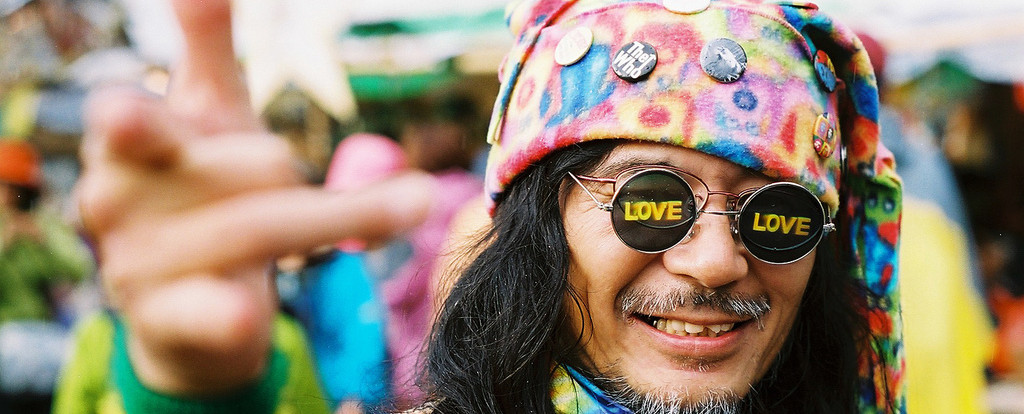Judaism is just a beautiful religion. It allows so many people to believe in so many different things at the same time. There may be some avenues, some paths, that seem to inherently contradict in philosophy (for example, insular vs open), and yet they are both fully accepted. Fully apart of the belief system.
You can be a right-wing nutball. Or a left-wing heart-on-your-sleeve sort of person. It doesn’t matter.
You are still an orthodox Jew.
And then, then it goes even further. It says, “If you believe in One G-d, if you have a few rules put in place… well, by gosh, welcome to the club! Okay, no, not the Jewish club (trust us, it’s not for everyone). But no worries, we’re talking about the G-dly club, the club of people who care about raising the world into a holy place and making it a dwelling place for the Ultimate Truth.”
All that to say that you don’t have to be a Jew to be a part of the Master Plan. You don’t need to even believe in the same thing! You can even have a belief system that is very much at odds with mine!
But we’re on the same page, you and me, because we have a few core things down. And, honestly, if you ain’t no idol worshipper, then you’re pretty good in my book.
(Orthodox) Judaism is a pluralistic, liberal, open, embracing religion. There are so many different ways of looking at the world that are embraced, that are true in the sense that they are avenues to connecting to the One above and below and everywhere all at once.
Believe in evolution? Awesome, no worries. Don’t believe in evolution? Also good.
Are you a lady and also wear tefillin every day? Rock on, rock star.
Do you hate everything I’m saying now and think I’m just being a ridiculously liberal fool? No worries, my brother (or sister). I love you (well, I should) all the same.
And yet you and I, why does it seem we keep getting sucked into the small arguments? The petty ones? Why does it seem that so many arguments, from the web, to newspapers, to just life, center around this finger-pointing, this belief that there is only my belief and no others?
The funny thing is that no matter how liberal or conservative Jews are, it seems that many of us have given up on our pluralism. Every debate seems to center around a “you vs. me” dynamic. A dynamic that there can only by one truth, and that anyone that deviates from that truth is a heretic.
Even if that is not said, it is what is implied, it is our language that expresses that.
I believe that this has come, not from Judaism, and certainly not from G-d, but from our “society”. The secular society that is. The world where we investigate and dissect and pick apart and cut out all the false truths and bring out what we believe is the Real Truth. And then all the folks with their false theories are thrown to the side and laughed at.
“Hahahaha, there were once people that believed the world was flat! Fools!”
Why else would debates around religion be so poisonous? So full of that judgmental tone?
Because we, as a people, have approached it like a bunch of secular scientists, saying that the truth I have arrived at is more valid than your truth.
It’s as if we’ve forgotten how deep G-d is, how vast, how infinite. It’s as if we forgot that we started off with twelve tribes, and that we’ve only broken apart more since then. It’s as if we don’t realize how deep Truth can be, how infinite Infinity can really be.
Judaism is pluralistic. But we aren’t. We’ve chosen not to be.
So I say it’s time we all wore our hippie clothes, sat by a bonfire, took out some guitars and mandolins, and started strumming “Kumbaya”. Because Judaism is, like, deep, man. And our different truths shouldn’t divide us. They should unite us. Because the one thing we all have in common is that we are different. And that G-d has chosen different avenues to tap into our hearts and minds.
And I know you may come and tap me on the virtual shoulder known as the comment section and say, “But, Elad, that’s like moral relativism, bro. Judaism doesn’t believe in that either. Stop singing and come back to earth.”
And I’ll simply say back, “Yes, yes, it’s true. But, friend, we’ve gone too far the other way. Even the most liberal of us are stuck in this mindset that everyone else has it wrong. We need some Kumbaya to get us back to where we’re supposed to be. We need more love. We need more singing.”
So join me in the circle, friend. And let’s sing.

Leave a Reply to Yadidya Greenberg Cancel reply